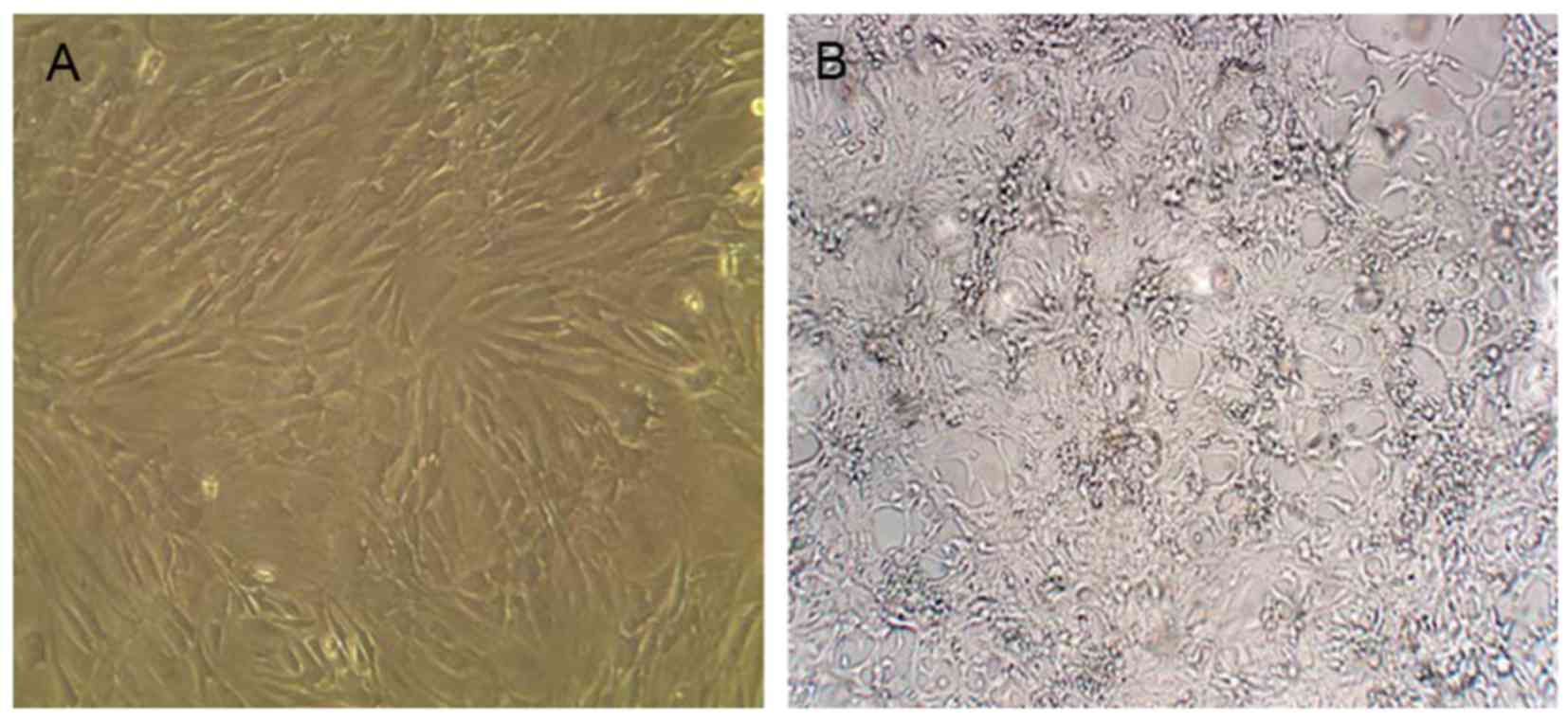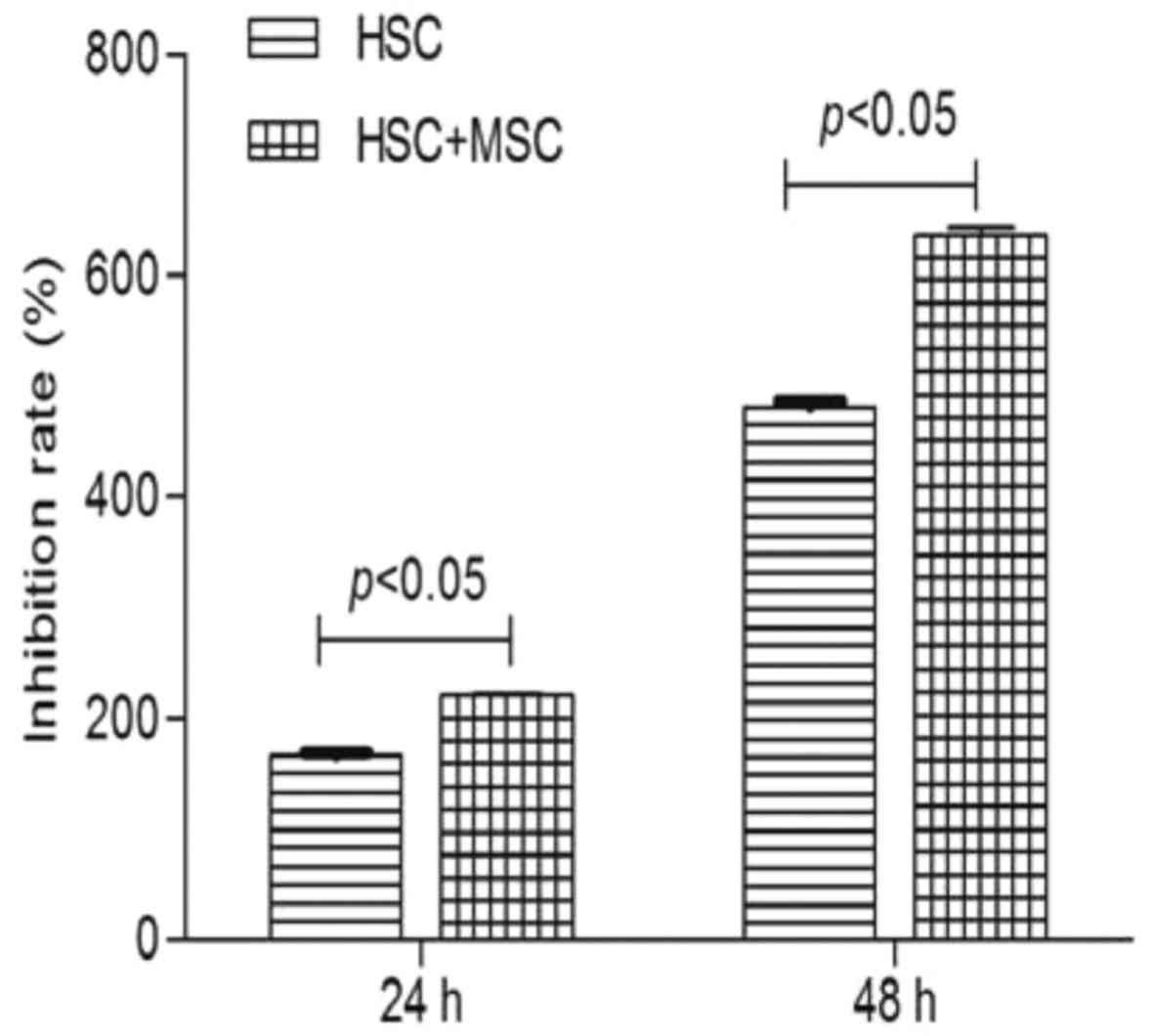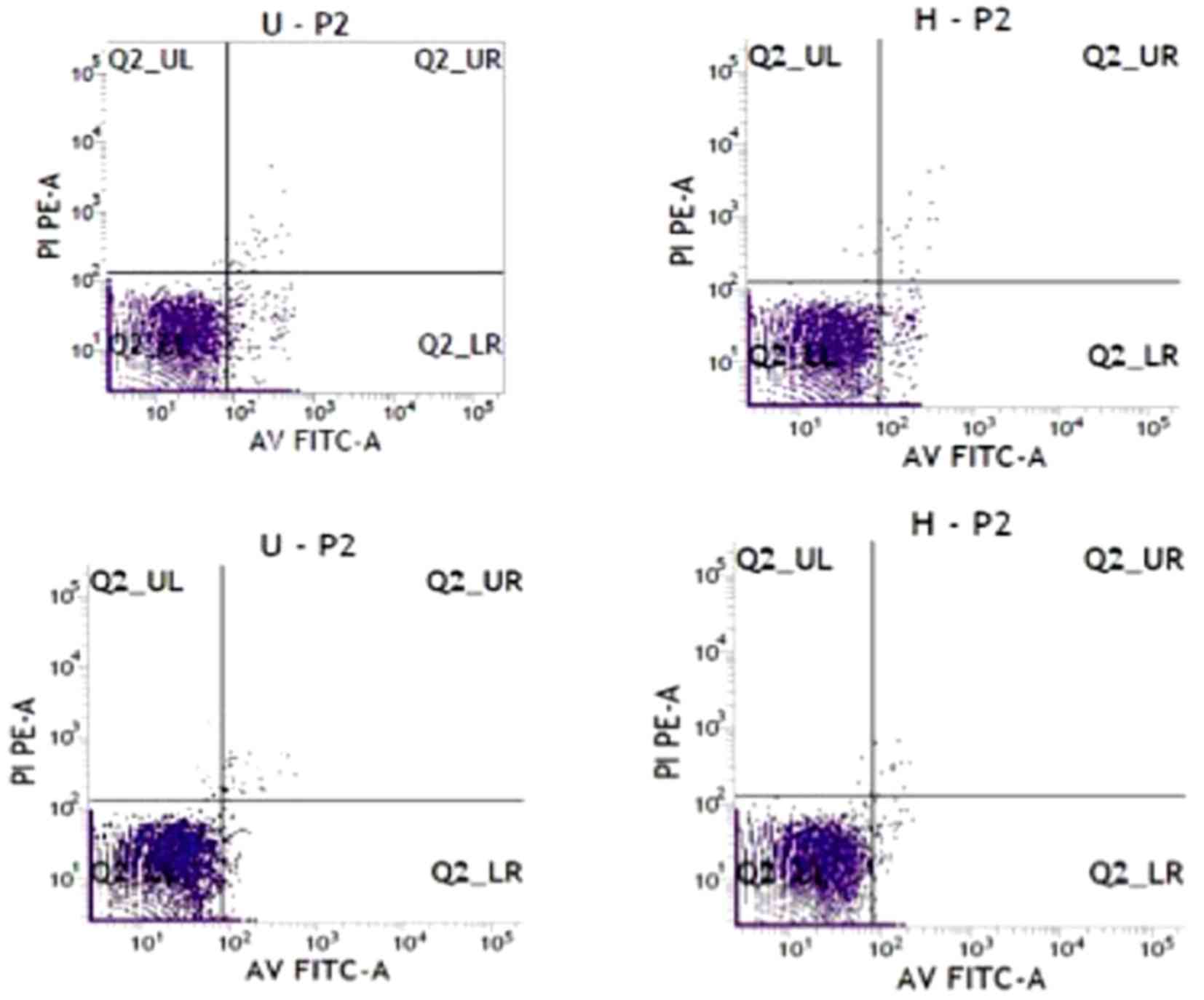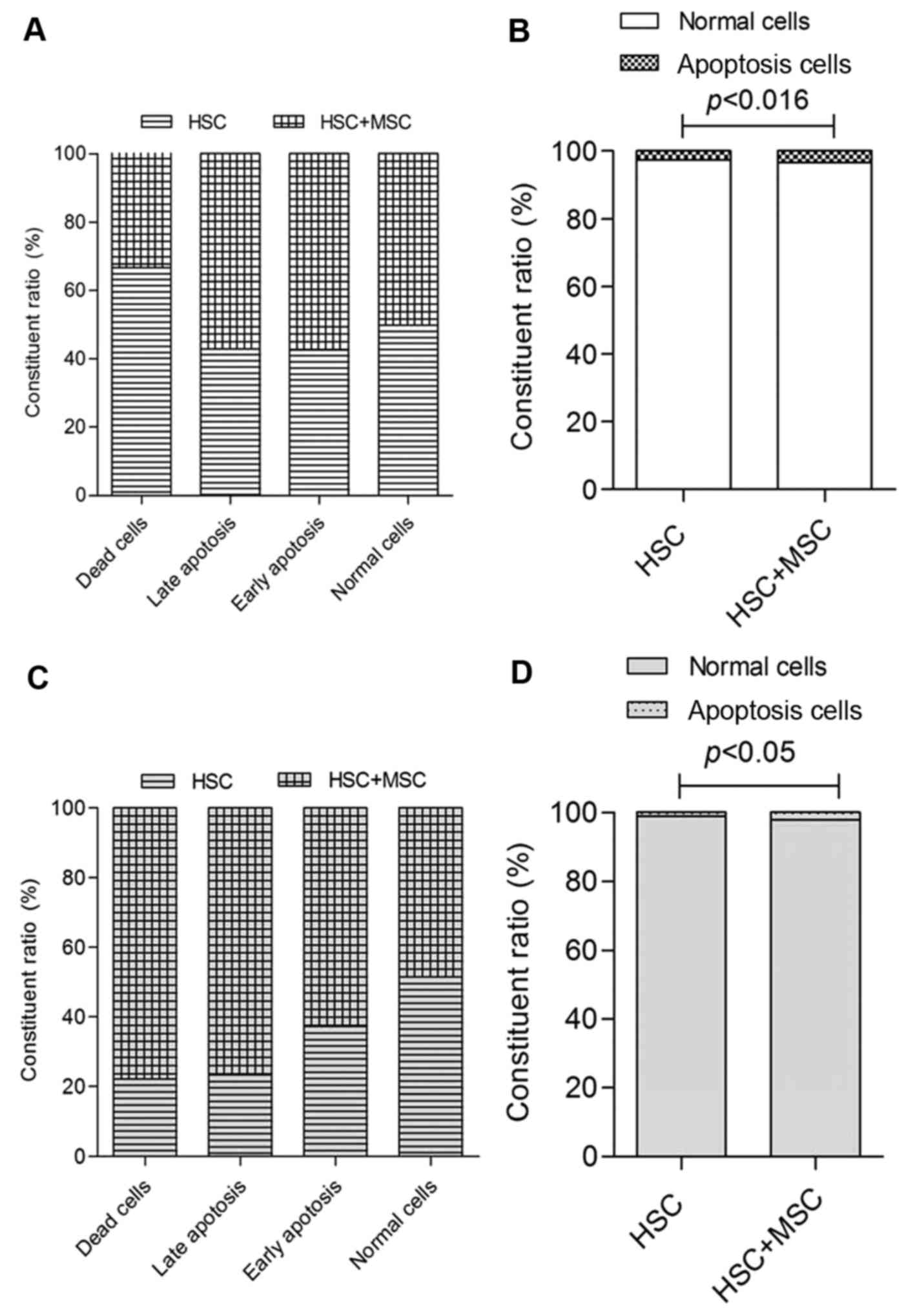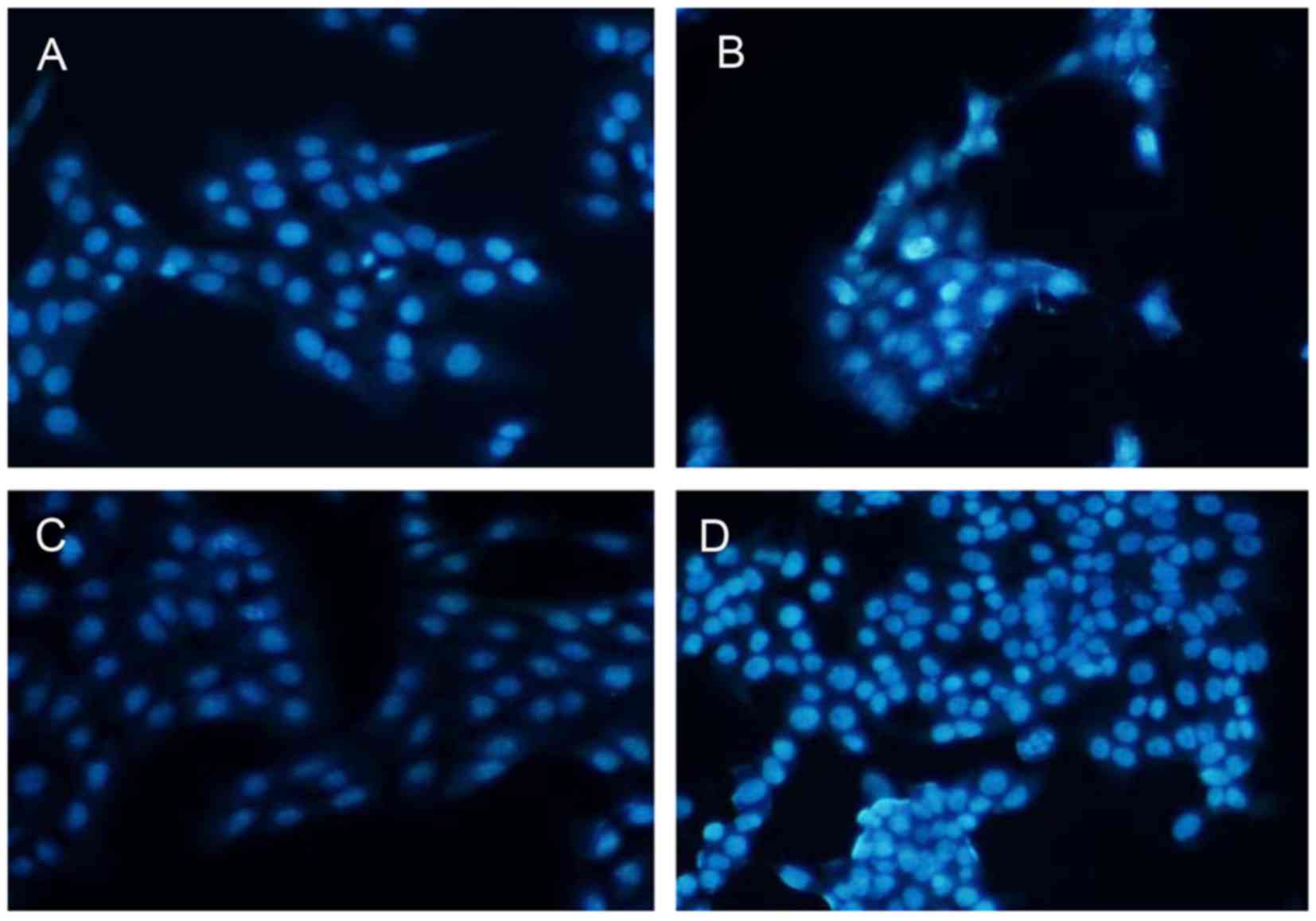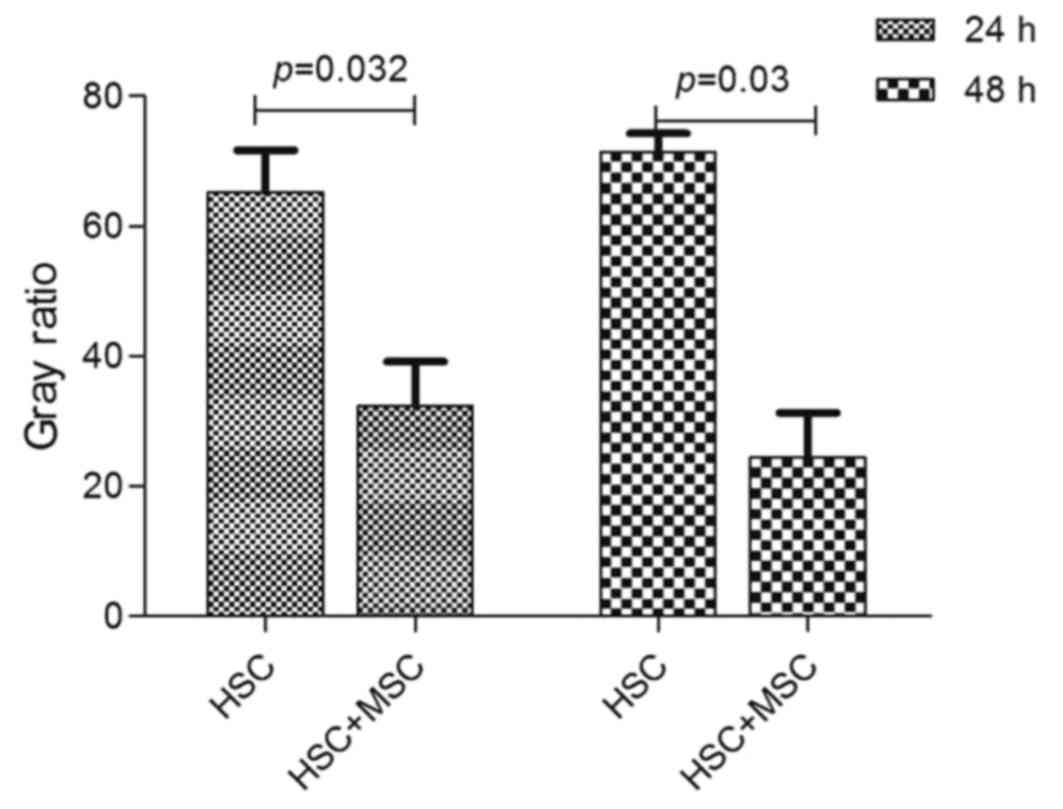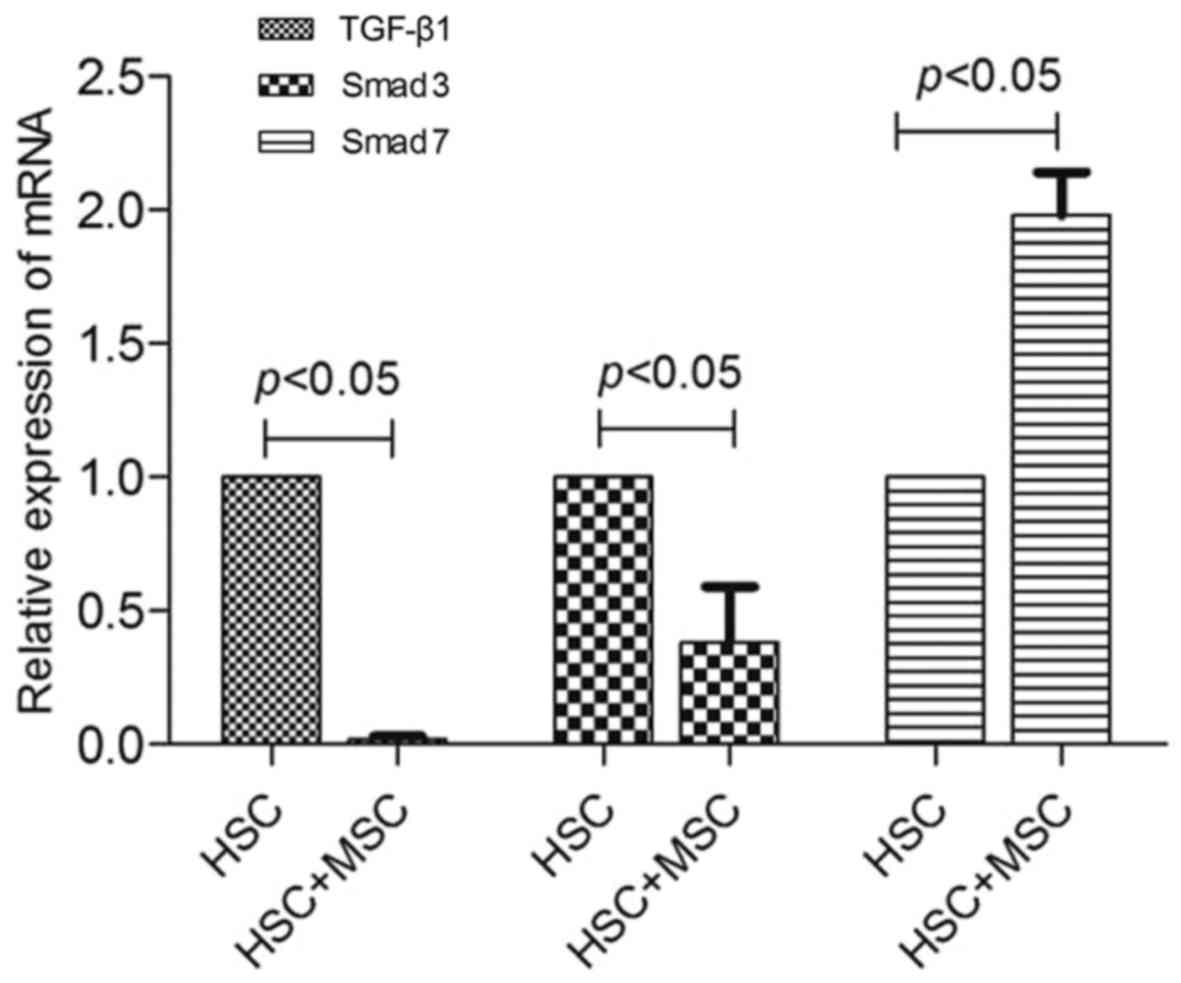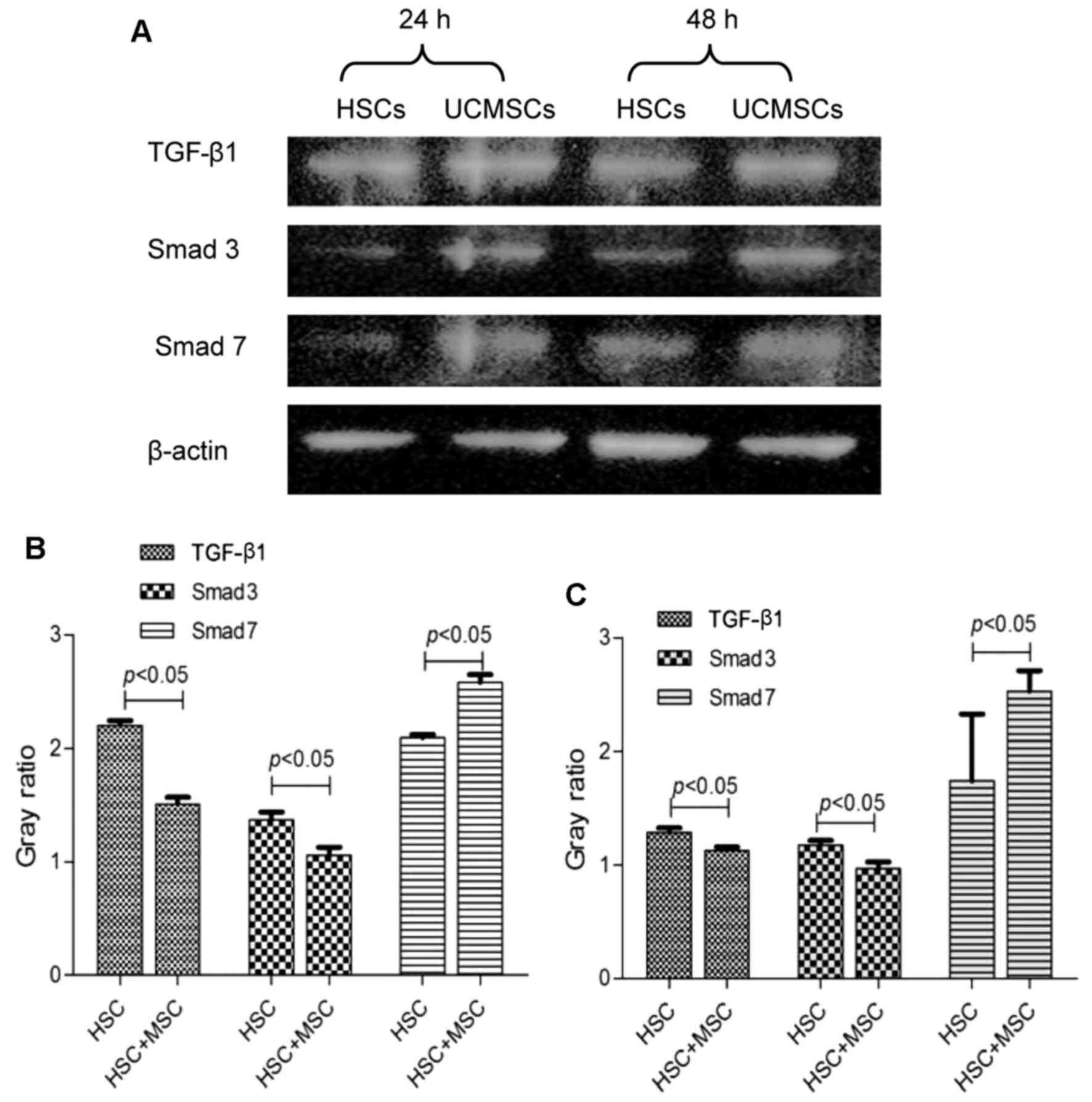|
1
|
Volarevic V, Nurkovic J, Arsenijevic N and
Stojkovic M: Concise review: Therapeutic potential of mesenchymal
stem cells for the treatment of acute liver failure and cirrhosis.
Stem Cells. 32:2818–2823. 2014. View Article : Google Scholar : PubMed/NCBI
|
|
2
|
Berardis S, Dwisthi Sattwika P, Najimi M
and Sokal EM: Use of mesenchymal stem cells to treat liver
fibrosis: Current situation and future prospects. World J
Gastroenterol. 21:742–758. 2015. View Article : Google Scholar : PubMed/NCBI
|
|
3
|
Zhang L, Ye JS, Decot V, Stoltz JF and de
Isla N: Research on stem cells as candidates to be differentiated
into hepatocytes. Biomed Mater Eng. 22:105–111. 2012.PubMed/NCBI
|
|
4
|
Secunda R, Vennila R, Mohanashankar AM,
Rajasundari M, Jeswanth S and Surendran R: Isolation, expansion and
characterisation of mesenchymal stem cells from human bone marrow,
adipose tissue, umbilical cord blood and matrix: A comparative
study. Cytotechnology. 67:793–807. 2015. View Article : Google Scholar :
|
|
5
|
Berardis S, Lombard C, Evraerts J, El
Taghdouini A, Rosseels V, Sancho-Bru P, Lozano JJ, van Grunsven L,
Sokal E and Najimi M: Gene expression profiling and secretome
analysis differentiate adult-derived human liver stem/progenitor
cells and human hepatic stellate cells. PLoS One. 9:e861372014.
View Article : Google Scholar : PubMed/NCBI
|
|
6
|
Pan RL, Wang P, Xiang LX and Shao JZ:
Delta-like 1 serves as a new target and contributor to liver
fibrosis down-regulated by mesenchymal stem cell transplantation. J
Biol Chem. 286:12340–12348. 2011. View Article : Google Scholar : PubMed/NCBI
|
|
7
|
Burra P, Arcidiacono D, Bizzaro D, Chioato
T, Di Liddo R, Banerjee A, Cappon A, Bo P, Conconi MT, Parnigotto
PP, et al: Systemic administration of a novel human umbilical cord
mesenchymal stem cells population accelerates the resolution of
acute liver injury. BMC Gastroenterol. 12:882012. View Article : Google Scholar : PubMed/NCBI
|
|
8
|
Sakaida I, Terai S, Yamamoto N, Aoyama K,
Ishikawa T, Nishina H and Okita K: Transplantation of bone marrow
cells reduces CCl4-induced liver fibrosis in mice.
Hepatology. 40:1304–1311. 2004. View Article : Google Scholar : PubMed/NCBI
|
|
9
|
Li T, Yan Y, Wang B, Qian H, Zhang X, Shen
L, Wang M, Zhou Y, Zhu W, Li W, et al: Exosomes derived from human
umbilical cord mesenchymal stem cells alleviate liver fibrosis.
Stem Cells Dev. 22:845–854. 2013. View Article : Google Scholar :
|
|
10
|
Eom YW, Shim KY and Baik SK: Mesenchymal
stem cell therapy for liver fibrosis. Korean J Intern Med.
30:580–589. 2015. View Article : Google Scholar : PubMed/NCBI
|
|
11
|
Zhang LT, Fang XQ, Chen QF, Chen H, Xiao
P, Peng XB, Zhang SX, Li JF and Mao XR: Bone marrow-derived
mesenchymal stem cells inhibit the proliferation of hepatic
stellate cells by inhibiting the transforming growth factor β
pathway. Mol Med Rep. 12:7227–7232. 2015. View Article : Google Scholar : PubMed/NCBI
|
|
12
|
Røsland GV, Svendsen A, Torsvik A, Sobala
E, McCormack E, Immervoll H, Mysliwietz J, Tonn JC, Goldbrunner R,
Lønning PE, et al: Long-term cultures of bone marrow-derived human
mesenchymal stem cells frequently undergo spontaneous malignant
transformation. Cancer Res. 69:5331–5339. 2009. View Article : Google Scholar : PubMed/NCBI
|
|
13
|
Tang Q, Chen Q, Lai X, Liu S, Chen Y,
Zheng Z, Xie Q, Maldonado M, Cai Z, Qin S, et al: Malignant
transformation potentials of human umbilical cord mesenchymal stem
cells both spontaneously and via 3-methycholanthrene induction.
PLoS One. 8:e818442013. View Article : Google Scholar : PubMed/NCBI
|
|
14
|
Wang Y, Yu X, Chen E and Li L:
Liver-derived human mesenchymal stem cells: A novel therapeutic
source for liver diseases. Stem Cell Res Ther. 7:712016. View Article : Google Scholar : PubMed/NCBI
|
|
15
|
Kim WH, Matsumoto K, Bessho K and Nakamura
T: Growth inhibition and apoptosis in liver myofibroblasts promoted
by hepatocyte growth factor leads to resolution from liver
cirrhosis. Am J Pathol. 166:1017–1028. 2005. View Article : Google Scholar : PubMed/NCBI
|
|
16
|
Zhao YL, Zhu RT and Sun YL:
Epithelial-mesenchymal transition in liver fibrosis. Biomed Rep.
4:269–274. 2016. View Article : Google Scholar : PubMed/NCBI
|
|
17
|
Borkham-Kamphorst E, Herrmann J, Stoll D,
Treptau J, Gressner AM and Weiskirchen R: Dominant-negative soluble
PDGF-beta receptor inhibits hepatic stellate cell activation and
attenuates liver fibrosis. Lab Invest. 84:766–777. 2004. View Article : Google Scholar : PubMed/NCBI
|
|
18
|
Saxena NK, Titus MA, Ding X, Floyd J,
Srinivasan S, Sitaraman SV and Anania FA: Leptin as a novel
profibrogenic cytokine in hepatic stellate cells: Mitogenesis and
inhibition of apoptosis mediated by extracellular regulated kinase
(Erk) and Akt phosphorylation. FASEB J. 18:1612–1614. 2004.
View Article : Google Scholar : PubMed/NCBI
|
|
19
|
Lang T, Ikejima K, Yoshikawa M, Enomoto N,
Iijima K, Kitamura T, Takei Y and Sato N: Leptin facilitates
proliferation of hepatic stellate cells through up-regulation of
platelet-derived growth factor receptor. Biochem Biophys Res
Commun. 323:1091–1095. 2004. View Article : Google Scholar : PubMed/NCBI
|
|
20
|
Hata A and Chen YG: TGF-β signaling from
receptors to Smads. Cold Spring Harb Perspect Biol. 8:a0220612016.
View Article : Google Scholar
|
|
21
|
Argentou N, Germanidis G, Hytiroglou P,
Apostolou E, Vassiliadis T, Patsiaoura K, Sideras P, Germenis AE
and Speletas M: TGF-β signaling is activated in patients with
chronic HBV infection and repressed by SMAD7 overexpression after
successful antiviral treatment. Inflamm Res. 65:355–365. 2016.
View Article : Google Scholar : PubMed/NCBI
|
|
22
|
Lu B, Zhou YN, Li Q, Wu ZQ, Zhang ZY, Ji
R, Guo QH and Liu W: Correlations of TGF-betaRII, Smad4 and Smad7
expression to clinicopathologic characteristics and prognosis of
gastric cancer. Ai Zheng. 28:538–542. 2009.In Chinese. PubMed/NCBI
|















